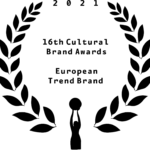The ‘Novi Sad 2021’ Foundation invites you to apply for the ARGE Donauländer scholarship, which is awarded by the Country of Lower Austria, Working Community of the Danube Regions (ARGE Donauländer). The scholarship is awarded for study trips within the Danube region that would include education, further education, or training in the fields of science, art, culture and cultural management.
Within the support to the feminist scene of Novi Sad, as well as continuation of the CAT conference held in November last year, the Foundation has secured scholarships for 5 female artists and cultural workers from Novi Sad.
Who are the eligible beneficiaries?
Eligible beneficiaries are individuals whose main place of residence is in countries that there are members of the ARGE Donauländer, who work in areas of science, art, culture or cultural management, and who want to work in a field that corresponds to the objectives and tasks of the ARGE Donauländer.
Age limit: generally, not older than 35 years.
What are the areas supported by the scholarship?
Science, art, culture and management.
What is the duration of the study trip?
The study trips cannot be more than 6 months.
What is the amount of the scholarship?
The amount of the scholarship is up to € 1.000,00, depending on the country of residence, the destination country, expected expenses and the purpose of the visit.
What geographic territories are eligible for the scholarship?
Study trips for the purpose of education and training in the above mentioned subject areas should be organised in one of the states in which there are members of the ARGE Donauländer (outside the home country).
Member countries / regions:
Germany: State of Baden-Württemberg;
Austria: Upper Austria, Lower Austria, Burgenland and Vienna;
Slovakia: Districts of Bratislava and Trnava;
Hungary: Counties of Györ-Moson-Sopron, Komárom-Esztergom, Pest, Fejér, Bács-Kiskún, Tolna and Baranya as well as the capital Budapest;
Croatia: Counties of Osječko-Baranjska and Vukovarsko-Srijemska;
Serbia;
Bulgaria: Provinces of Vidin, Montana, Vratsa, Pleven, Veliko Tărnovo, Rousse and Silistra;
Romania: Counties of Caraş-Severin, Mehedinţi, Dolj, Olt, Teleorman, Giurgiu, Călăraşi, Ialomiţa, Brăila County, Galaţi, Tulcea and Constanţa;
Moldova;
Ukraine: Province of Odessa.
Observers:
Czech Republic: Region South Moravia;
Slovakia: District of Nitra.
How will the applications be assessed?
The criteria for assessing the applications are the following:
• The importance of the activity for the objectives and tasks of the ARGE Donauländer;
• The content and professional quality of the activity;
• The duration of the stay;
• The cost of the stay (e.g. travel expenses, attendance fees, tuition fees, accommodation).
What is the procedure for submission of application?
The application must be submitted in writing using the appropriate form – in German or English – and personally signed.
Address for submission:
Amt der Niederösterreichischen Landesregierung,
Abteilung Kunst und Kultur
Landhausplatz 1
A-3109 St. Pölten
Contact person:
Mag. Katka Krejcova:
Имејл адреса: katka.krejcova@noel.gv.at
Телефон: +43/(0)2742/9005-13081
Факс: +43/(0)2742/9005-13029
Deadlines for applications:
There are two deadlines for submission, first one is by 15 April 2018, and the second one is by 15 September 2018.
Additional documents to be sent (in German or English):
• CV
• Motivational letter
• 1 recommendation letter
• Copy of the passport
• informal statement of costs: a list of estimated costs (e. g. accommodation, meals, tuition fee, course fees, transport, learning materials)
The application can be sent via e-mail for a preliminary assessment, but the original must be sent also via postal service!
Who decides on the award of scholarships?
Pursuant to Article 6(2) of the Lower Austrian Culture Promotion Act from 1996, a specialist Advisory Board consisting of experts for culture and science from the Danube Region was appointed to award the ARGE Donauländer Scholarships of Lower Austria. The Advisory Board meets twice a year to review the applications.
Is knowledge of German necessary in order to apply (since the documents are in German)?
It is not necessary to have developed German language skills. It is necessary to fill out the form (which is in German). This can be done partly in German and partly in English. The application forms filled in in Serbian will not be reviewed.
Does a candidate need to know the language of the country where he/she plans his/her study trip?
The knowledge of any language is not an explicit precondition for the scholarship. The candidate must prove that he/she will develop and educate himself/herself in a destination country. It must be credible that the applicant has sufficient language skills for the chosen educational offer.
If a candidate wants to educate or to continue his/her education abroad, it is deemed that he or she speaks the language of the destination country, but this is not always the case. Study trips in many countries can be organised in English.
Does a candidate need to plan the study trip in advance?
Yes, a candidate must already have a training place before the application. Therefore, a letter of recommendation is required. The candidates apply for a semester abroad or for a summer school and if they are admitted to an academy / summer school / university then they apply for the ARGE Donauländer Scholarship.
Does a candidate need to provide information about other grants?
Yes, candidates should also provide information about other funds they receive e.g. Erasmus+. This can be communicated in the informal financial plan. In principle, both subsidies can be applied simultaneously.
How and when is the payment made?
The payment is made by bank transfer in advance. After the jury meeting, the candidates will be informed whether or not they will be awarded an ARGE Donauländer scholarship and in what amount. The bank account details are to be indicated in the application form.
Documents:
You can download the application form in German here.
You can download the translation of the application form into Serbian here.
You can download text of the open call in German here.


